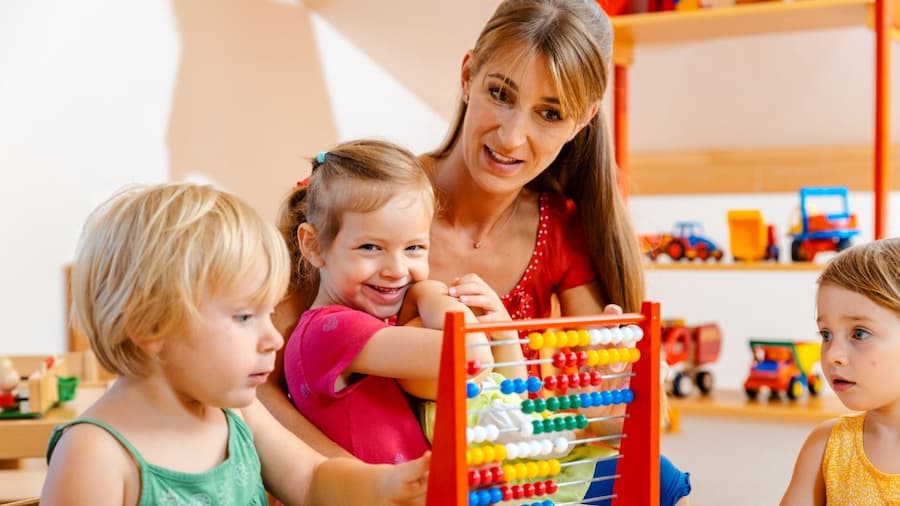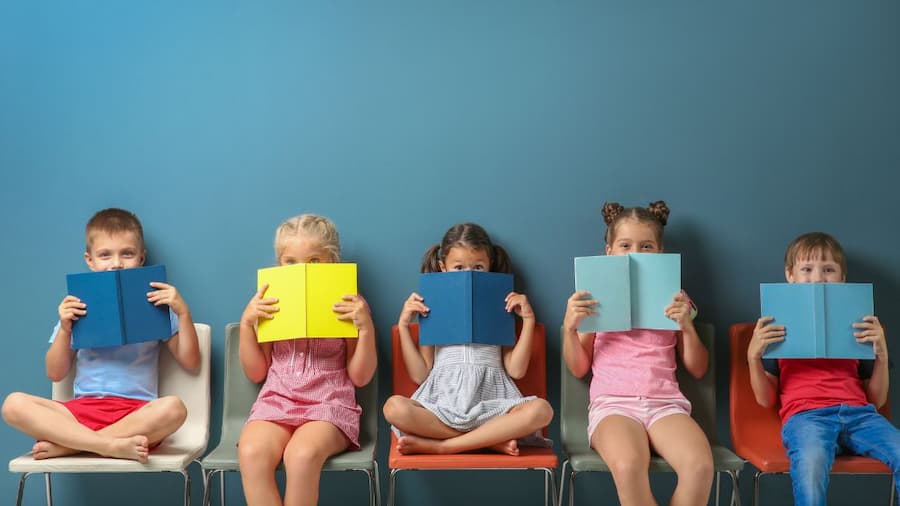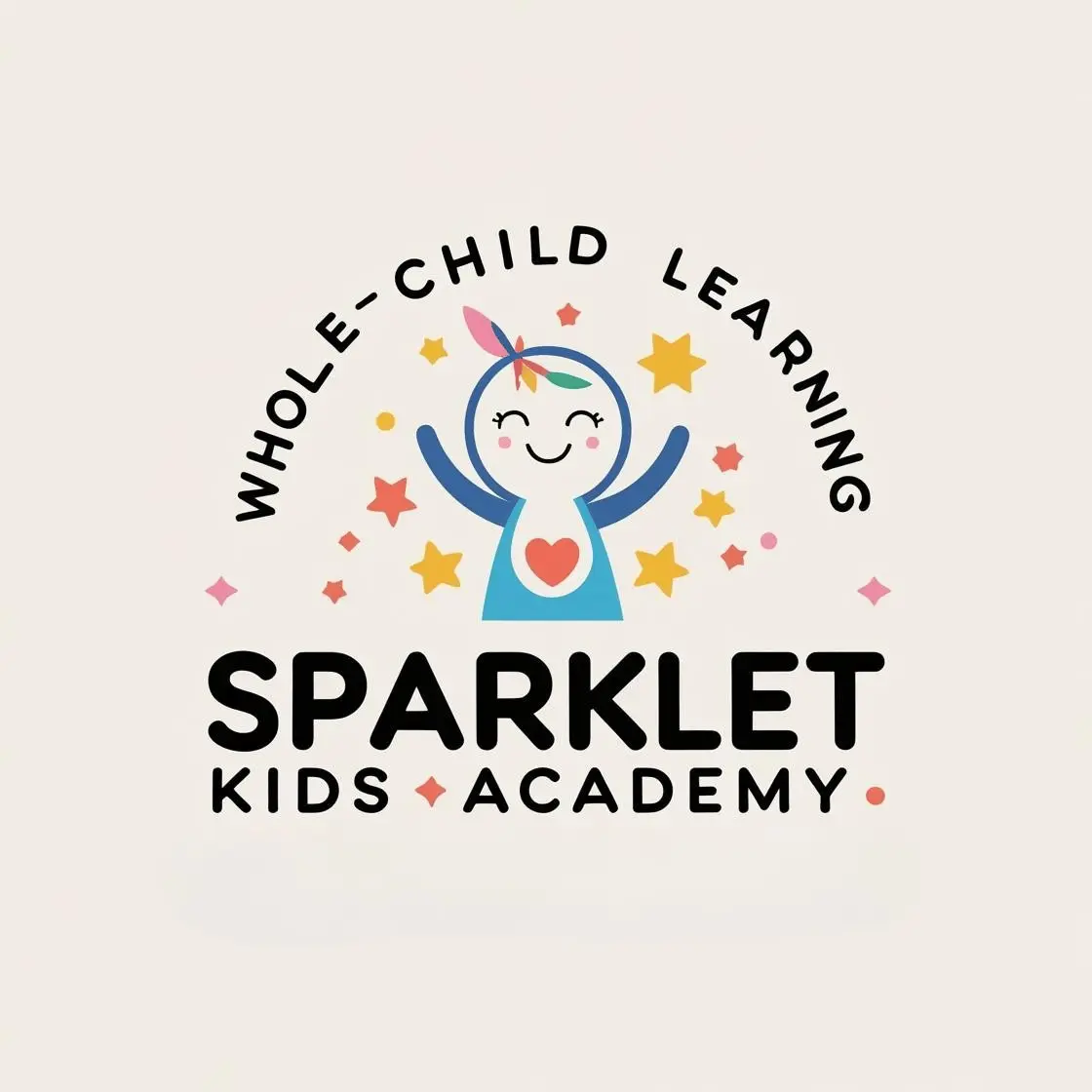
Hey there, fellow parents! We know you’re probably feeling a bit overwhelmed trying to find the right preschool program for your little one. Trust us, we’ve been there. When your child turns 3, you might spend weeks researching preschools near you, and honestly? It can feel like trying to solve a puzzle with missing pieces.
Here’s the thing – finding the best preschools doesn’t have to be this stressful. We’re going to walk you through everything you need to know during your search, from understanding different preschool programs to actually making that final decision. Because let’s face it, we all want our kids to get a great start, especially when it comes to getting them ready for top Santa Clara elementary schools.
What’s a Preschool Program Really About?
You know, when parents first start looking into preschool programs, many think they’re just fancy daycare centers. But you’d be wrong! A good preschool program is actually designed for children ages 3 to get them ready for kindergarten. It’s not just about keeping kids busy – these places focus on helping little ones grow socially, emotionally, and mentally, especially if it’s a program that also offers daycare for a newborn for younger siblings.
What Makes Preschool Different
You can visit a preschool and watch kids in the classroom. They’re not just playing randomly – there’s structure to it. The teachers help them learn through play, which is pretty amazing when you think about it. That’s how these programs build kindergarten readiness without making it feel like work.
Why Early Childhood Education Actually Matters
Look, we’ll be honest – before having kids, many parents don’t really get why early childhood education is such a big deal. But here’s what you should know: those early years are when kids’ brains are like little sponges. They’re picking up social skills, learning how to solve problems, and developing emotional intelligence that’ll stick with them forever.
When you find good preschools near you, you’re not just getting childcare. You’re giving your child a chance to develop literacy skills, learn how to make friends in a multicultural environment, and build confidence. The National Association for the Education of Young Children has tons of research showing how much these early learning experiences matter for kindergarten readiness.

Different Types of Preschool Programs (And What They Mean)
This part can confuse parents at first. There are so many preschool options! Some child care centers offer full-day programs, others do half-day, and some have part-time options. Then you’ve got specialized approaches like Montessori or Waldorf.
Understanding Your Options
You’ll find that many places also offer head start programs, which are fantastic if you qualify. Some, like Sparklet Kids Academy, even combine daycare and preschool services, which can be perfect for families since many parents work full-time. The key is figuring out what learning environment works best for your child and your schedule.
How to Actually Find Preschools Near You
Okay, let’s get practical. When you start your search, you might literally Google “preschool near me” and get overwhelmed by the results. Here’s what we wish someone had told parents from the start.
Start Your Search the Smart Way
Research Strategy
First, use online directories – they’re your friend! You’ll find that searching “preschools near me” gives you a good starting point, but you should also check local parenting Facebook groups. Other parents are goldmines of information, trust us.
Don’t forget to consider whether you need summer camp options too. Some child care centers offer year-round programs, which can be a lifesaver if you’re working parents trying to maintain a good work-life balance.
What to Actually Look for When Choosing
Here’s where many parents make mistakes initially. You might be so focused on finding the “perfect” preschool that you almost miss what really matters. The Child Care Aware website can help you understand what questions to ask.
Look at the preschool teachers – are they qualified? Do they seem to genuinely enjoy working with children ages 3 and up? Check out the classroom setup. Is it safe? Does it look like a place where kids can explore and learn?
The curriculum matters too, but don’t get caught up in fancy names. What you want is a well-rounded curriculum that prepares every child for what’s coming next. Ask about their approach to building literacy skills and social development.
Getting the Real Scoop from Other Parents
Parent Network Insights
We can’t stress this enough – talk to other parents! When you’re checking out preschools near your house, ask everyone you know for recommendations. The local United Way chapter also has a list of quality early education programs in your area.
Read online reviews, but take them with a grain of salt. What matters most is visiting the school yourself and seeing how your child responds to the learning environment.

Understanding Preschool Curriculum (Without the Education Jargon)
When preschool directors start talking about their curriculum, you might feel like you need a translator. Let us break it down in normal-parent terms.
What Makes a Good Preschool Curriculum
A solid preschool curriculum isn’t just about teaching kids their ABCs (though that’s important too). It’s about creating learning experiences that help children grow in all areas. Think of it like this – your child should be learning to share, solve problems, express themselves, and yes, get ready for kindergarten.
The best preschool programs you’ll visit have activities that don’t feel forced. Kids are learning through play, which is exactly how 3-year-olds learn best. The Zero to Three organization has great resources explaining how young children actually learn.
Why a Well-Rounded Approach Works
Balanced Development
You might think preschool is just about academic readiness, but it’s so much more. A well-rounded curriculum helps nurture creativity, builds social skills, and develops emotional regulation. These are the things that give children a great start, not just in kindergarten, but in life.
When you visit different early education programs, look for places that balance structured learning with free play. Kids need both to develop properly.
Readiness Programs That Actually Work
Kindergarten readiness isn’t about turning 4-year-olds into mini students. Good readiness programs focus on helping children develop the skills they need to succeed – things like following directions, working with others, and feeling confident about learning new things.
The learning program should feel natural, not forced. When preschool teachers are doing their job right, kids don’t even realize they’re being “prepared” for anything. They’re just having fun and growing.
Daycare vs. Preschool: What’s the Real Difference?
This is one of the biggest questions parents have when they start looking for child care. Are daycare and preschool really different, or is it just marketing?
The Honest Truth About the Differences
Understanding the Distinction
Here’s the deal – daycare centers primarily focus on keeping your child safe and cared for while you’re at work. And there’s absolutely nothing wrong with that! We all need reliable childcare.
Preschools, on the other hand, are more focused on early education. They have structured learning programs designed to promote development and prepare children for what’s next. The National Child Care Information and Technical Assistance Center explains these differences really well.
Why You Might Choose a Preschool Program
For many families, parents want more than just childcare. You might want your child to be in a learning environment where they can develop social skills, explore their creativity, and build confidence. The preschool program you choose should have qualified preschool teachers who understand child development, not just babysitters.
Finding Places That Do Both
Best of Both Worlds
The good news? Many child care centers now offer both daycare and preschool services. These programs give you the convenience of full-day care with the benefits of structured early learning. It’s honestly the best of both worlds for working parents.

Building That Love of Learning (And Why It Matters)
You know what parents should realize? The goal isn’t just kindergarten readiness – it’s nurturing a genuine love of learning that’ll last a lifetime.
Simple Ways to Encourage Learning
The best early education programs make learning feel like play. When you watch kids in different preschools, the happiest ones are in places where curiosity is celebrated. Teachers ask open-ended questions, encourage exploration, and make every child feel like their ideas matter.
At home, you can try to follow the same approach. Read together, ask “what if” questions, and celebrate effort over perfection. It’s amazing how this simple shift can make such a difference.
Activities That Actually Work
Learning Through Play
You might think educational activities have to be complicated, but that’s not true at all. Some of the best learning happens through simple play – building with blocks, telling stories, making art, and playing with friends.
The American Academy of Pediatrics has great resources about developmentally appropriate activities for children ages 3 and up. The key is making sure activities match where your child is developmentally, not where you think they should be.
Social Skills Matter More Than You Think
Here’s something you might not expect – social skills turn out to be just as important as academic readiness. Learning to share, communicate feelings, and work with others? These are life skills that start developing in preschool.
Good preschool teachers understand this. They create opportunities for kids to practice these skills in a safe, supportive environment. It’s pretty amazing to watch, actually.
Head Start and Other Readiness Programs
If you’re looking into early education options, you might have heard about Head Start. Let us tell you what you should know about these programs.
What Head Start Actually Is
Government Support Programs
Head Start is a government program designed to give children from lower-income families access to quality early childhood education. It’s not just preschool – they also provide health services, meals, and support for families.
The Office of Head Start website has all the details about eligibility and services. If you qualify, it can be an incredible resource for your family.
Getting Into Readiness Programs
The application process varies depending on your area and the specific program. Generally, you’ll need to provide income documentation and complete an application. These programs often have waiting lists, so it’s worth applying early if you think you might be interested.
Why These Programs Make a Difference
Comprehensive Family Support
What we love about programs like Head Start is that they take a whole-family approach. They’re not just providing early education for your child – they’re supporting your entire family’s success. That’s the kind of comprehensive support that can really give every child a great start.
The research on early education programs is pretty convincing. Kids who attend quality programs like these do better in school, have higher graduation rates, and are more likely to succeed as adults. That’s a pretty good return on investment, if you ask us.
Finding the right preschool program doesn’t have to be overwhelming. Take your time, visit schools, ask lots of questions, and trust your instincts. Every child deserves a great start, and with a little research, you’ll find the perfect early learning environment for your little one.
Remember – you’re not just choosing childcare. You’re choosing a place where your child will grow, learn, and develop a foundation for lifelong success. And that’s pretty exciting, don’t you think?
